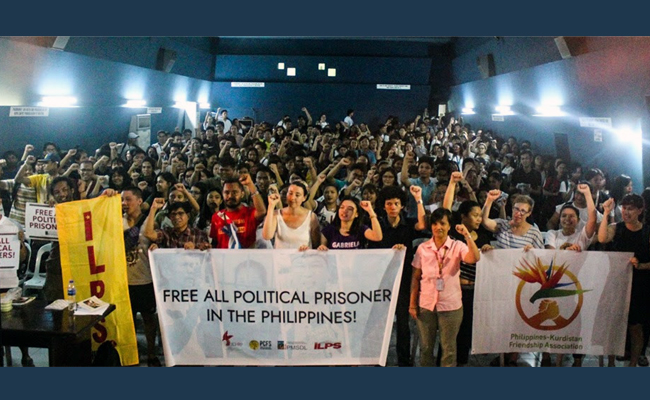An international movement of grassroots groups of small food producers and food sovereignty advocates expressed its support to Iceland’s proposed resolution urging the United Nations Human Rights Council (UNHRC) to take concrete steps in addressing the human rights situation in the Philippines.
The People’s Coalition on Food Sovereignty (PCFS) commended the UN member state for filing the draft resolution. The coalition also welcomed the support from the 28 UN member states, mostly from Europe, that already expressed support to the proposal to call out the government of the Philippines for its “gross and unabated repression especially of the rural people,” according to its global co-chairperson Razan Zuayter.
Once the proposed resolution is approved, the UNHRC will request UN human rights chief Michelle Bachelet to conduct an investigation on the state-perpetrated human rights violations in the Philippines and present a comprehensive report at the UNHRC’s 44th session. At least a simple majority vote or 24 out of the 47 member states of the UNHRC is needed for the resolution’s approval during the council’s 41st regular session, which has been ongoing since June 24 to July 12. The resolution was filed last July 4
“With the country’s periodic review nearing, we look forward to the UNHRC to push through with the probe on the human rights situation in the Philippines. The rising number of state-perpetrated attacks and the worsening rural repression demands urgent action,” said Zuayter.
The Philippines is set to undergo its midterm Universal Periodic Review (UPR) in November this year. The UPR is a process of the UN that reviews the human rights records of all its member states.
According to the network, military rule was imposed in various provinces of the country and the crackdown of civil society intensified to quell opposition to neoliberal policies that serve foreign corporate interest. “And [Philippine president] Duterte has been getting away with his seeming tyranny that state forces are emboldened to carry out its crimes to a greater degree,” she said.
For her part, PCFS co-chairperson Sylvia Mallari expressed the network’s outrage on the nonstop spate of arrests and killings in Negros province, central Philippines, with five battalions currently deployed to allegedly suppress terrorism. The province has become the center of attention for the frequency of farmers massacres that have taken place. Of the ten that were documented since Duterte came to power, two happened in Negros in the past six months. Mallari was referring to the nine farmworkers killed in Sagay City last December 2018 and the most recent one in March that slain eight farmers in Canlaon City and two in Sta. Catalina town.
“The Philippines remain to be the deadliest country in Asia and perhaps the whole world for land rights defenders, with more than 200 peasant killings already recorded halfway of Duterte’s term,” she said, citing the records of the Peasant Movement of the Philippines (KMP), a member organization of PCFS, and human rights group KARAPATAN. In PAN Asia Pacific’s Land and Rights Watch report, close to half of the 290 killings it documented from January 2017 to June 2019 were in the Philippines.
Just this week, peasant leaders Datu Mario Agsab and Joel Anino from Bukidnon province were shot dead in two separate incidents. Bukidnon is also under severe militarization due to the implementation of Martial Law in Mindanao, southern Philippines.
The PCFS officials mentioned that 11 independent experts of the UNHRC, majority of which are Special Rapporteurs, also issued the same recommendation for an independent probe earlier in response to the severity of the human rights violations. They released a joint statement on June 7 urging the UNHRC to “establish an independent investigation into the human rights violations in the Philippines.”
“The demand for an independent investigation is a respite for the Filipino people, especially the rural people who have to bear with poverty and militarization of their communities, from the spike of state-perpetrated attacks. More importantly, it will send the message to other UN member states like in Latin America and Asia where killings are just as rampant to address the situation and hold the perpetrators accountable,” Mallari said.
She also reiterated the network’s call to stop killing of farmers as well as the criminalization of dissent. “We will never get tired of our efforts until state perpetrators are held accountable for their crimes against their people,” she added.
